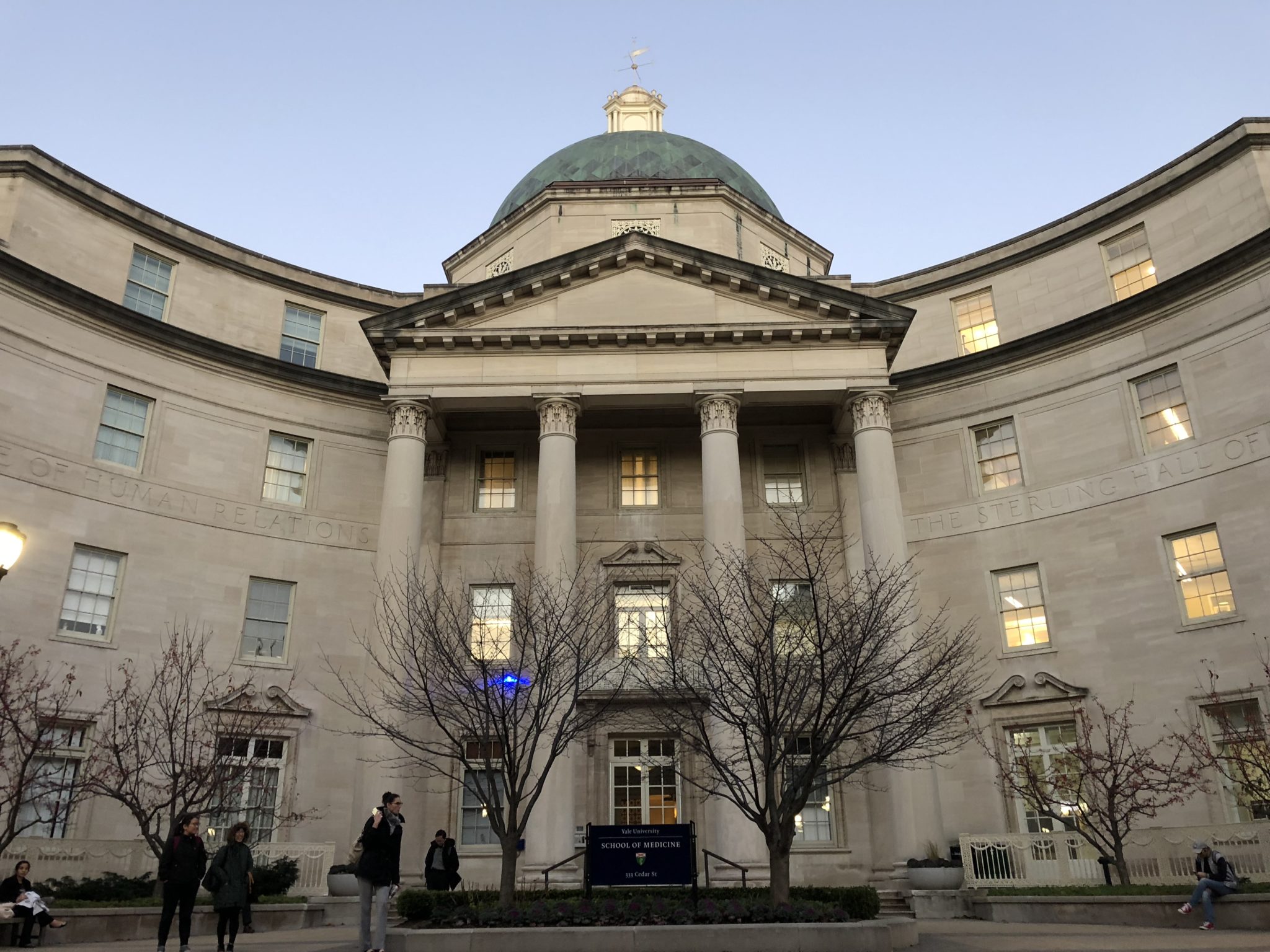
As the Yale School of Medicine reckons with allegations of sexual misconduct against its faculty members, the National Institutes of Health — a U.S. government agency that funds the majority of the School of Medicine’s research projects — recently instituted new policies and guidelines intended to hold institutions accountable for complaints of sexual misconduct against faculty members.
In a September statement, NIH Director Francis Collins said the recent report by the National Academies of Science, Engineering and Medicine found that the NIH’s current policies on workplace harassment were ineffective in reducing sexual harassment in academia and medicine. In response, the NIH launched a website that outlines its current policies and provides resources for combating harassment within its awardee institutions, Collins said.
The new website emphasizes that organizations receiving NIH funding must notify NIH of sexual misconduct–related disciplinary sanctions that hinder a principal investigator’s work. Per the new policy, Yale will now have to notify the institution that grants the majority of its medical school’s funding whenever the University-Wide Committee on Sexual Misconduct issues a punishment that interferes with a faculty member’s research.
“[Sexual harassment is] morally indefensible, it’s unacceptable, and it presents a major obstacle that is keeping women from achieving their rightful place in science — as trainees representing the next generation of innovators, as researchers making important scientific discoveries, and as senior personnel on NIH-supported grants,” Collins said in the statement.
Jodi Black, deputy director of the NIH office of extramural research, said the NIH can revoke an ongoing grant or designate a new principal investigator when the institution fails to notify the NIH of disciplinary sanctions that interfere with a scientist’s work. Black added that the NIH reviews these reports on a case-by-case basis. Still, the NIH’s policy will not consider previous instances of sexual misconduct when a principal investigator submits a new grant application, she added.
According to Pamela Caudill, Yale’s senior associate provost, the Office of Research Administration will report required cases to the NIH. A representative from the Office of Sponsored Projects who is responsible for submitting grants for part of the medical school declined to provide a comment for the story.
The announcement of the NIH’s updated policy comes in the midst of renewed controversy at the Yale Medical School regarding an allegation of sexual harassment levied against Michael Simons, cardiology professor and former chief of cardiology. In 2013, he was found responsible of sexually harassing a junior colleague. Yale medical faculty members went into an uproar this summer after Simons, who had previously held a different endowed professorship, was given a new endowed chair at the end of July. The new award was later revoked by School of Medicine Dean Robert Alpern, prompting a lawsuit against the University, in which Simons alleged that Yale had breached its contract with him.
In the past, faculty members at the School of Medicine have voiced concerns that the NIH grants, whose research funding also funds other aspects of universities’ operational costs, give principal investigators too much institutional leverage, discouraging universities from holding faculty members accountable when found guilty of sexual misconduct.
According to epidemiology professor Nancy Ruddle GRD ’68, while costs for running other professional schools come from the University’s budget, the School of Medicine funds a large portion of their faculty salaries, utilities fees and research expenses with grants from agencies like the NIH. In an email to the News last week, Alpern said 10 percent of the school’s total revenue in the most recent fiscal year came from grant funding for indirect costs of research.
Nina Stachenfeld, a senior research scientist in the Department of Obstetrics, Gynecology and Reproductive Sciences, serves as a co-chair of the Committee on the Status of Women in Medicine. She said the school’s financial reliance on grants makes it difficult for the administration to hold perpetrators of sexual misconduct accountable, especially those who receive large grants.
“In any organization, people in positions of power … have some built-in advantage,” said Chris Pittenger, a psychiatry professor and the vice chair of the School of Medicine Faculty Advisory Council. “Having lots of grants — which correlates with doing important work in the field and bringing status and money to the university — gives you that power. … Some people have more power and some have less power, and the situation gets messy and complicated when people with a lot of power are accused by those with less power.”
In a statement to the News, Stachenfeld commended the NIH’s efforts to combat workplace sexual harassment, calling it a “big step” for the agency.
“In the past [harassment] was not even on their radar,” Stachenfeld said. “They have only considered the quality of the scientist and the science when considerations of funding have been made. I would have to be happy to say this matters to them now. I hope these announcements have real teeth in them for both [Yale] and [NIH].”
Linguistics professor and Women Faculty Forum chair Claire Bowern agreed that “in general terms, these policies provide both much-needed leadership on issues [of harassment, as well as] material consequences for those who engage in misconduct.”
Still, Bowern added that the new policy has to be combined with efforts to end sexual misconduct in institutions receiving funds from the NIH.
“Otherwise, [the policies] just create pressure not to report the misconduct, pressure not to formally investigate it, or even perceived disincentives for senior men to hire or mentor junior women,” Bowern said.
NIH annually invests nearly $37.3 billion into U.S. medical research annually, according to its website.
Serena Cho | serena.cho@yale.edu .
Marisa Peryer | marisa.peryer@yale.edu .







